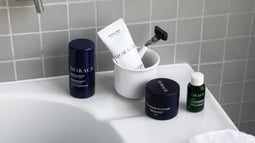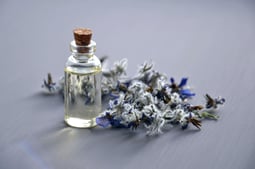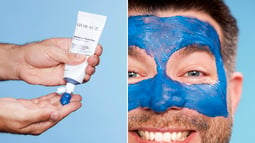

Everything you need to know about hydrating your skin.
Every year it's the same thing. While winter and its cool temperatures are setting in and scarves and hats are back in service, our skin is subject to the same ailments: tightness, redness, discomfort... It’s no secret that to soothe and protect our skin from external aggressions, it needs to be hydrated. But why is our skin more thirsty in the wintertime? Why is it important to have well hydrated skin? And what are the right steps to take? Dr. Isabelle Gallay, dermatologist and venerologist in Dijon, France, and vice-president of the National Syndicate of Dermatologists-Venerologists (NSDV) has answered all the questions you may have about hydration.
How does the skin stay hydrated?
Let's start at the beginning: the skin is an organ made up of tissues that needs to be nourished. The stratum corneum, aka the superficial layer of the epidermis, which is composed of dead cells, is protected by something called the hydrolipidic film barrier that’s composed of (mostly) sweat and sebum. This film protects the skin from aggressions and helps maintain optimal hydration levels. So when it gets damaged, the skin is more vulnerable: a moisturiser is needed to restore this protective barrier. “Hydration consists of bringing different substances to the surface to compensate for any deficits due to drying out, whether climatic or constitutional, for people with pathologies, explains Dr. Gallay, before continuing: We essentially bring molecules called “natural moisturising factors” in order to compensate for the missing factors.” These substances - amino acids, hyaluronic acid, lactic acid, etc, are important since they help retain water and therefore keep the skin hydrated.
Hot, cold, wind… What wrinkles the skin?
In theory, if our skin is supposed to regulate its hydration alone, in fact, ageing and external aggressions contribute to drying it out. As Dr Gallay explains, our skin is more or less prone to dehydration depending on the climate: “The infrared rays from the sun will heat the skin and create evaporation, which leads to dehydration. On the other hand, in wintertime, the cold air will constrict blood vessels and reduce nutritional intake. The wind and the more aggressive climatic factors are what will really create cellular dehydration”, explains the dermatologist. Especially depending on your age and on the pace of your lifestyle, your skin can find it more difficult to regulate its hydration: “If you do a lot of exercising, or if you do intense activities, the body draws on its reserves, which must be replenished”, explains Dr. Gallay. But ultimately, what are the risks of having skin that’s not hydrated enough? Dry skin leads to dullness, tightness, redness, and irritation... in short, discomfort. But it doesn’t stop there. “The skin barrier becomes less effective, leaving your skin less protected, meaning it will more easily allow bacteria and micro-organisms to pass through it,” reports the specialist. For that reason, regular hydration is strongly recommended, especially in summer and winter, when the external environment has a greater tendency to attack the hydrolipidic film.
Hydration: a gesture to integrate into the routine
Instructions vary according to your skin type. A light moisturiser applied in the morning may be sufficient for normal skin, but skin that deals with a dry pathology like eczema, atopic dermatitis, or even psoriasis, will need to be hydrated more frequently (at least twice a day). Apart from these special cases, we suggest choosing the richness of your creams according to your skin type and to apply your moisturisers in the morning and evening after washing your skin to protect it from pollution and environmental factors. “While it’s recommended to apply a light and protective emulsive cream in the morning, you might want to apply something more nourishing in the evening with polyunsaturated fatty acids like omega 3. This will help address the deficiencies of your cell membranes to enhance your skin barrier”, details Dr. Gallay. Our advice is to reapply regularly in winter, when the cold air puts a strain on our skin, bundled up under layers of clothing, and continue applying daily throughout the rest of the year.










